This Chef's Practical Tips For Cutting Down On Food Waste In Your Home Kitchen Are Going Viral On TikTok
Raise your hand if you've ever had to toss out veggies that went bad before you could cook them.

Paramount Pictures / Via giphy.com
The person I was when I last went grocery shopping was verrrrry optimistic about how much broccoli I could eat in a week...
Throwing away food is never a good feeling, but it's even worse when groceries are expensive as hell. So it's no wonder that 41-year-old chef Alison Mountford's (@itscchefalison) food waste prevention tips are going viral on TikTok.
Alison's videos have racked up millions of views. In a couple of her most popular clips, she shows viewers how to soften up brown sugar that has turned into a brick by using a piece of bread, and what to do with garlic that's about to go bad. (Spoiler: You need to make a delicious garlic confit.)
@itschefalison Friends that know I teach home-cooked to reduce their food waste give me their aging vegetables. This week was 3 1/2 pounds of peeled garlic! But, even if you have just a handful of peeled garlic, or even some old clothes, you can use this oil poaching trick to make soft, roasted garlic and infused oil in one fell swoop. I put most of this in my freezer and will not peeled garlic for the next year 🙌 fofoodwastetiponofoodwasteagarlicconfitoroastedgarlicobotulismocookinghacksa#savethefood
♬ original sound - Alison Mountford
@itschefalison / Via tiktok.com
And commenters are extremely on board with her message.

I had to learn more about her mission to cut down on food waste and her best tips for home cooks, so I reached out via email.
Alison told BuzzFeed that she used to run a meal delivery and catering company, and her experiences there opened her eyes to how much food goes to waste. "During that time, I worked out of customers' homes, their offices, and for five years had a café. With all of that experience, I was able to see how home cooks, families, consumers, and businesses handled their food and where they struggled."

She continued, "Around 2015, I learned about the enormous environmental impact of food waste and that about 40% of wasted food happens at home. I realized that I had a very special insight into home cooking and decided to teach people how [to reduce] the food scraps! It’s such a simple eco-friendly action that anyone can take, with no special equipment needed or skill required. I remain passionate about it every time someone leaves a comment or shares a photo of what they’ve made!"
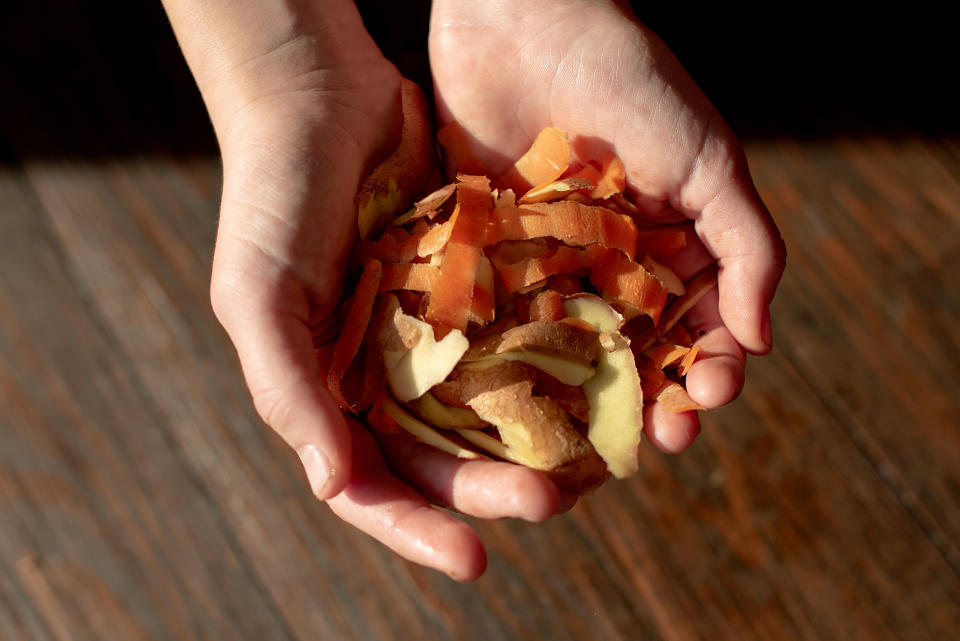
She also shared the two biggest mistakes she sees home cooks making that lead them to throw food away. Culprit number one is simply buying too much food without planning out how to use it. "It's common to grocery shop without a real plan in mind, and that leads to bringing home about 30% more food than you’ll actually cook and eat. If you learn to make a meal plan that fits with your mood and lifestyle, THEN grocery shop to match that plan, you’ll effortlessly waste less food," she said.
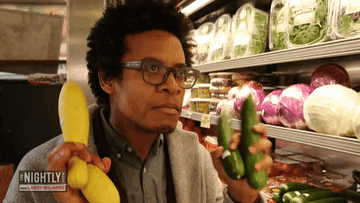
Comedy Central / Via giphy.com
Alison also sees home cooks go by dates on food packaging rather than trusting their senses, which can cause them to throw food away that's not really past its prime. "'Use by,' 'sell by,' 'best by,' and other 'expiration' dates are NOT about food safety (only infant formula is regulated for safety) — they’re about manufacturing and some quality," she said. "We don’t trust ourselves to look at a food to tell if it’s safe to eat, and thus we panic and toss it out."
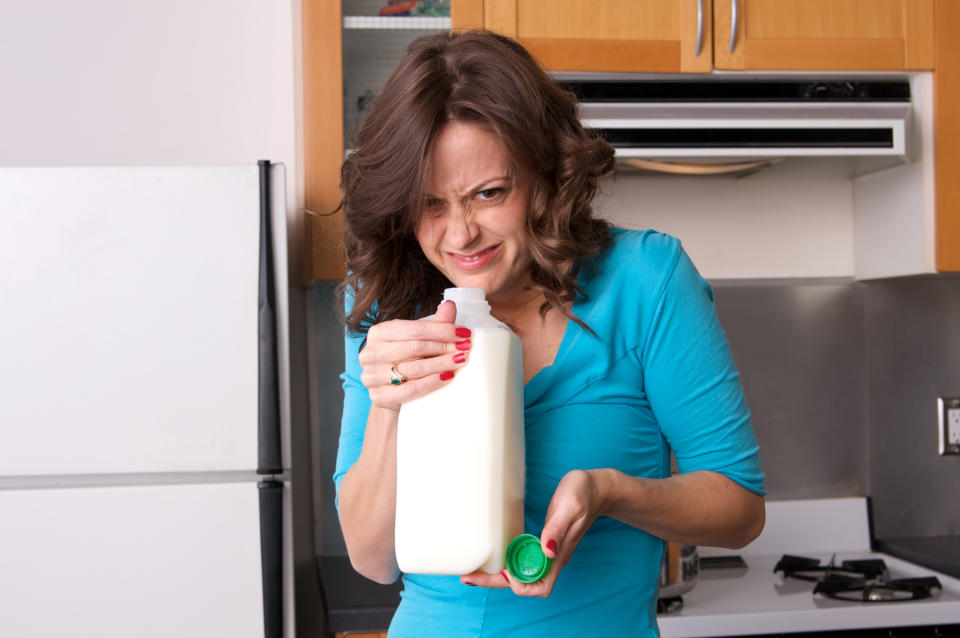
And she shared that most people don't grasp the full impact of wasted food. "Food in the landfill releases methane, which is the gas driving global warming, but also, wasted food wastes fresh water, precious cropland, natural gases, and resources required for refrigeration and transportation; it wastes billions of dollars annually; and there are millions of people in the US alone who are food insecure. Whether you can 'afford' to buy more groceries is only a fraction of the concern."
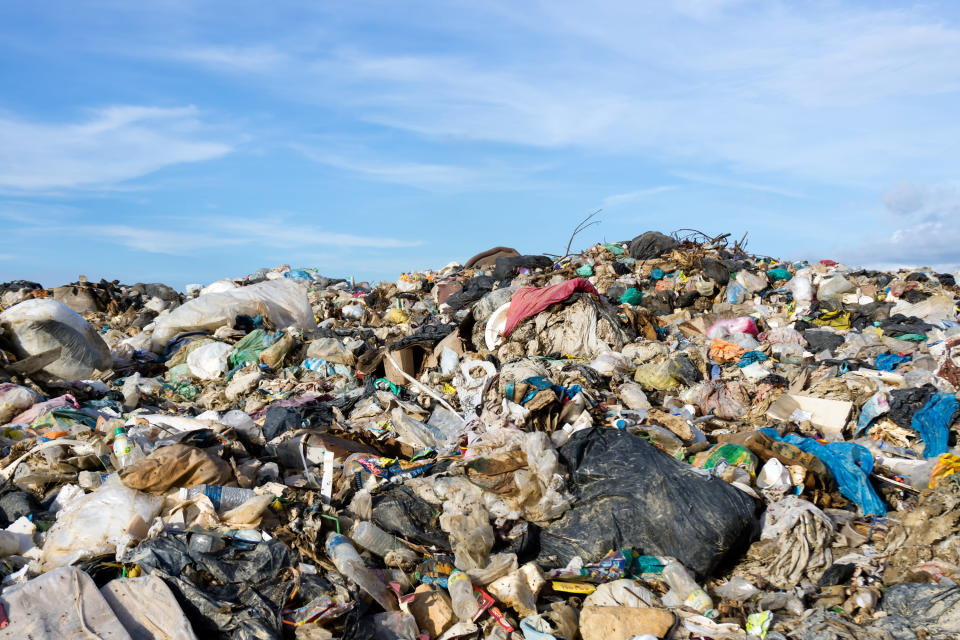
When you do find yourself having to throw some food away, Alison recommends composting it, since this way, it's not sitting in a landfill producing methane. BTW, you don't need to have outdoor space to compost — you can use a sealable bin indoors, too. Or, if you live in an urban area, check to see if your city has a composting or organic waste disposal program that can help make it easy.
@itschefalison Replying to @vampirevtubervixen I could talk about reducing food waste for dayssssss. What questions do you have? Tips to Zero Waste 101 * meal plan * start with whats already in your house tho * prioritize “aging” foods * freeze/preserve things before they’re trash * compost when you can * reinvent leftovers! #nofoodwaste #foodwastewarriors #leftovers #mealplanning #foodcycler #methaneemissions @thefoodcycler dries my scraps! 🙌
♬ original sound - Alison Mountford
@itschefalison / Via tiktok.com
Alison also founded Ends + Stems, a website devoted to teaching people how to reduce their food waste. "I have a 'What’s in Your Fridge? Recipe Finder' on the site and instructions for a food waste audit to get you started on your journey! There’s a meal planning app to put recipes together and make dinner more easily. I have a few eCookbooks and classes offered. I do a lot of public speaking to public and private groups who want either cooking classes, meal planning classes, or food waste awareness classes."
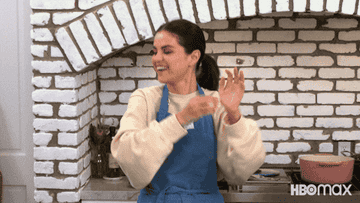
Max / Via giphy.com

